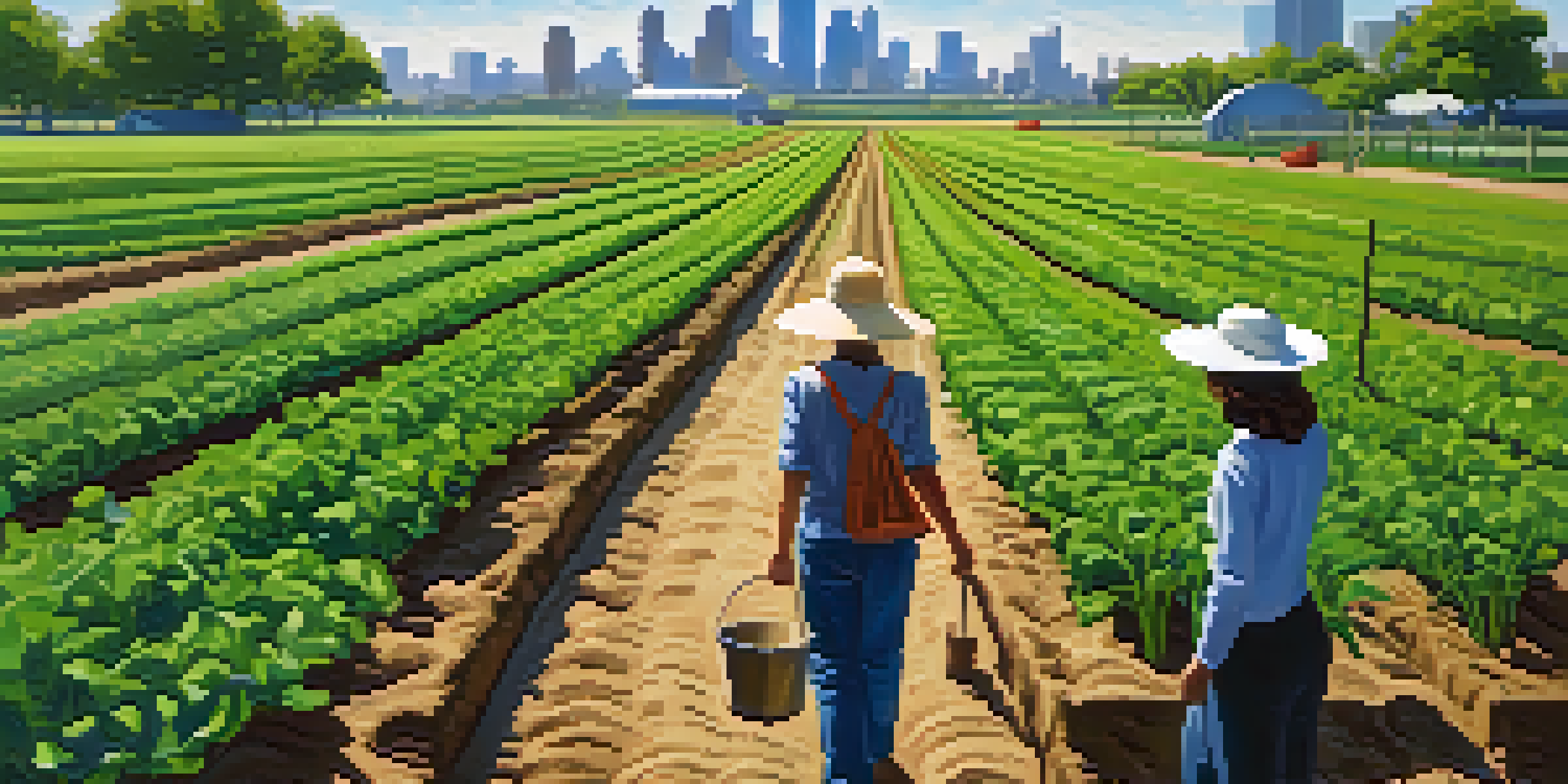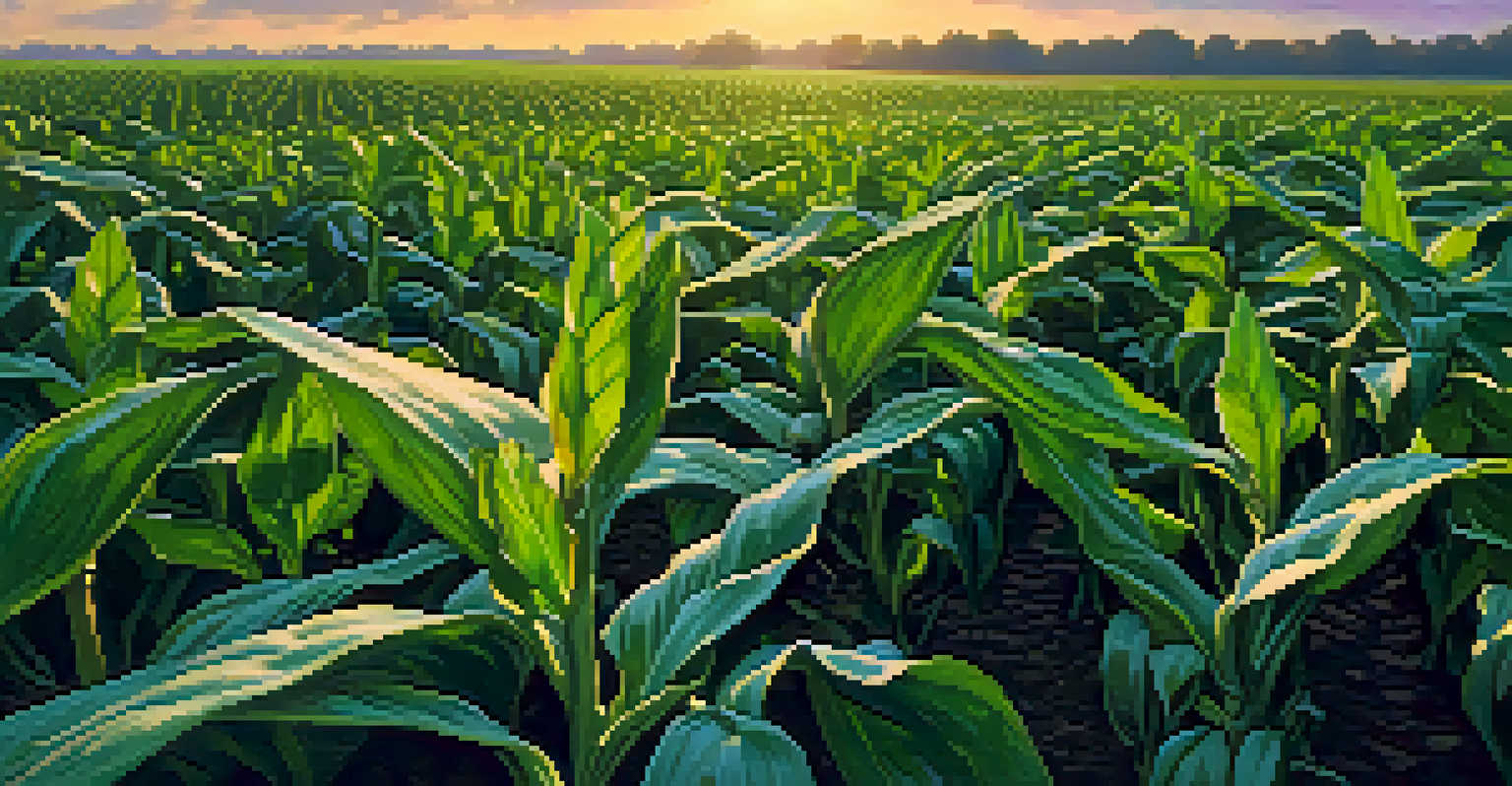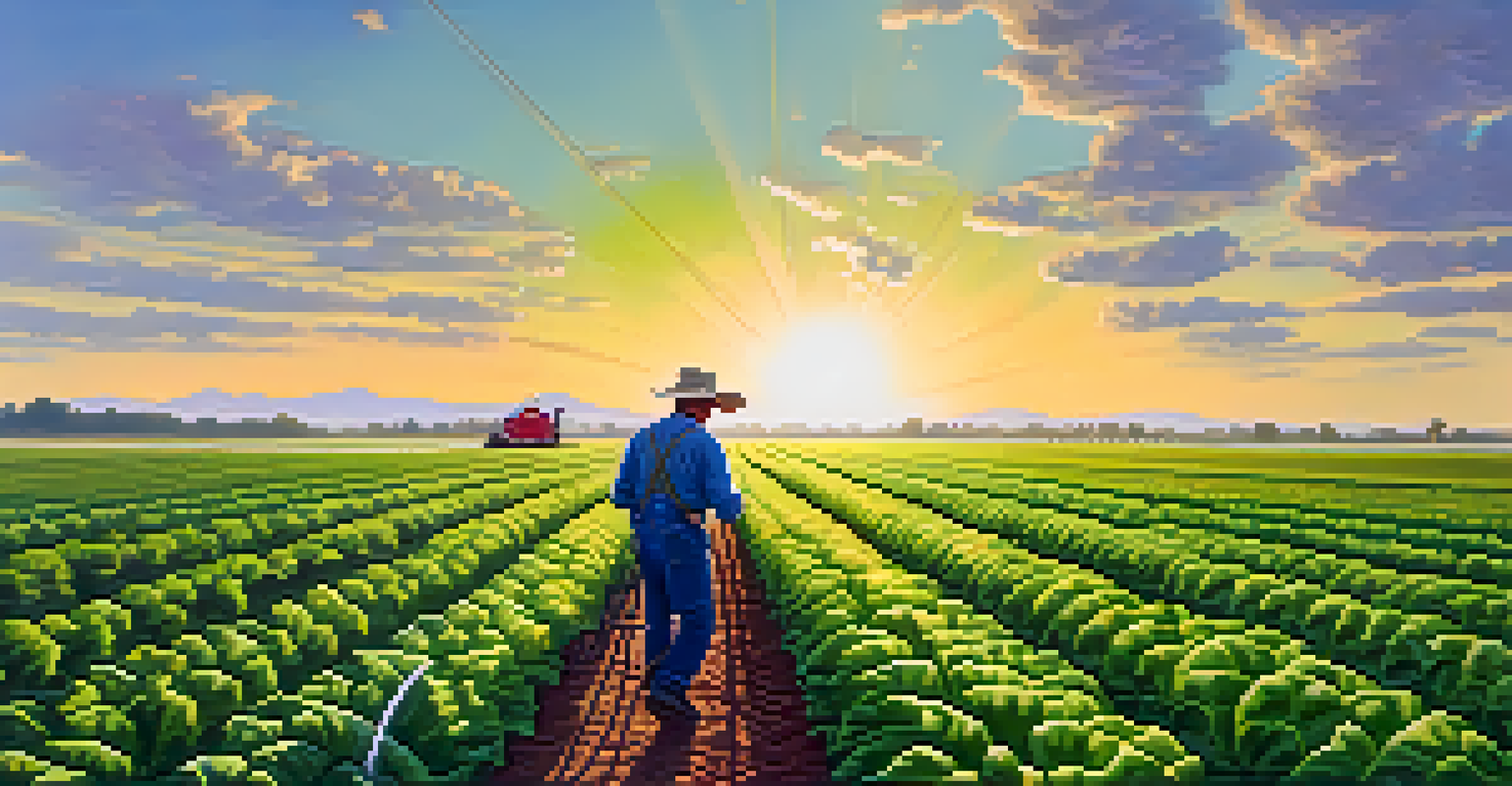How Rising Temperatures Impact Houston's Crop Yields

Understanding Houston's Climate and Agriculture
Houston's climate is typically characterized by hot summers and mild winters, making it suitable for various crops. However, the rising temperatures due to climate change are raising concerns among farmers and agricultural experts. As temperatures increase, the traditional growing seasons may shift, impacting what crops can thrive and when they can be planted.
Agriculture is our wisest pursuit, because it will in the end contribute most to real wealth, good morals, and happiness.
For instance, crops like corn and soybeans, which are staples in Texas agriculture, require specific temperature ranges for optimal growth. When temperatures exceed these ranges, it can lead to reduced yields or even crop failure. This shift can disrupt not only local farmers but also the broader food supply chain.
Moreover, the increased heat can lead to a higher demand for irrigation, straining water resources. Farmers must adapt their practices to cope with these changes, which may involve investing in new technologies or altering crop choices to ensure sustainability and productivity.
The Science Behind Rising Temperatures
Rising temperatures are primarily driven by climate change, which results from greenhouse gas emissions. These gases trap heat in the atmosphere, leading to a gradual increase in global temperatures. In Houston, this phenomenon is exacerbated by urbanization, as cities tend to be warmer than rural areas due to the heat island effect.

The heat island effect occurs when concrete and asphalt absorb and retain heat, causing local temperatures to rise. This situation is particularly concerning for crops, which can suffer from heat stress, leading to lower yields and diminished quality. Understanding this science is crucial for farmers as they navigate these challenges.
Climate Change Alters Crop Seasons
Rising temperatures are shifting traditional growing seasons, impacting crop viability and yields for Houston farmers.
Farmers can use this knowledge to implement strategies that mitigate the effects of rising temperatures. For example, selecting heat-resistant crop varieties or adjusting planting times can make a significant difference in yield outcomes.
Impact on Crop Growth and Development
Higher temperatures can disrupt the physiological processes of crops, affecting growth and development. For example, excessive heat can accelerate flowering in some plants, which might seem beneficial but can lead to a premature end to the growing season. This phenomenon can reduce the overall yield and quality of the crops harvested.
The greatest threat to our planet is the belief that someone else will save it.
Additionally, crops exposed to higher temperatures may experience increased susceptibility to pests and diseases. Warmer conditions can create a more favorable environment for pests, leading to infestations that can further damage crops. Managing these risks becomes increasingly important for farmers aiming to maintain productivity.
To combat these challenges, farmers might need to adopt integrated pest management strategies or explore organic farming practices. By being proactive, they can protect their crops and ensure a steady supply of quality produce.
Water Stress and Its Consequences
As temperatures rise, the demand for water increases, creating stress on Houston's water resources. With agriculture being a significant consumer of water, this rising demand can lead to competition between agricultural needs and urban water usage. Consequently, farmers may face challenges in securing enough water for irrigation during critical growing periods.
Water stress can lead to a reduction in crop yields, as insufficient moisture can hinder plant growth and development. This situation becomes particularly problematic during drought conditions, which are becoming more frequent due to climate change. Farmers must be increasingly vigilant about water management and conservation practices.
Increased Water Demand Challenges Farmers
As temperatures rise, the demand for water in agriculture intensifies, leading to competition for limited resources.
Implementing efficient irrigation systems, such as drip irrigation, can help mitigate water stress and improve crop resilience. By using water more wisely, farmers can sustain their operations while adapting to the changing climate.
Economic Implications for Farmers
The impact of rising temperatures on crop yields has significant economic implications for farmers in Houston. Lower yields can directly affect a farmer's income, leading to financial instability and difficulty in sustaining their livelihoods. These challenges can ripple through the local economy, affecting everything from supply chains to employment.
In addition to decreased yields, the rising costs of water and the need for new technologies can strain farmers' budgets. Investing in climate-resilient crops or efficient irrigation systems requires capital, which may not be readily available for all farmers. This financial burden can make it difficult for some to adapt.
Farmers may need to explore support programs or grants aimed at promoting sustainable practices. By leveraging available resources, they can better navigate the economic challenges posed by a changing climate.
Adapting Agricultural Practices
To combat the effects of rising temperatures, farmers in Houston are increasingly adopting innovative agricultural practices. Crop rotation, for instance, involves alternating different crops in the same field to improve soil health and reduce pest populations. This method can enhance crop resilience against heat stress and improve overall yields.
Another strategy is the adoption of cover crops, which are planted during off-seasons to protect and enrich the soil. Cover crops can help retain moisture, reduce erosion, and suppress weeds, making them a valuable tool for farmers facing the challenges of climate change.
Innovative Practices Enhance Resilience
Farmers in Houston are adopting new agricultural practices, like crop rotation and precision agriculture, to adapt to climate challenges.
Additionally, precision agriculture technologies, such as soil moisture sensors and satellite imaging, enable farmers to make data-driven decisions. These tools can help optimize resource use and improve crop management, ultimately leading to better yields despite rising temperatures.
Community and Policy Support for Farmers
Community and policy support play a crucial role in helping Houston farmers adapt to rising temperatures. Local governments and agricultural organizations can provide resources, education, and funding to assist farmers in implementing sustainable practices. Collaborations between farmers and researchers can also foster innovations that address climate challenges.
Moreover, policy initiatives aimed at promoting sustainable agriculture can create a supportive environment for farmers. This may include incentives for adopting eco-friendly practices or funding for research on climate-resilient crops. By prioritizing these initiatives, communities can help safeguard their agricultural sectors.

Ultimately, a united effort between farmers, policymakers, and the community can create a more resilient agricultural landscape. With the right support, Houston can better adapt to the impacts of rising temperatures on crop yields.